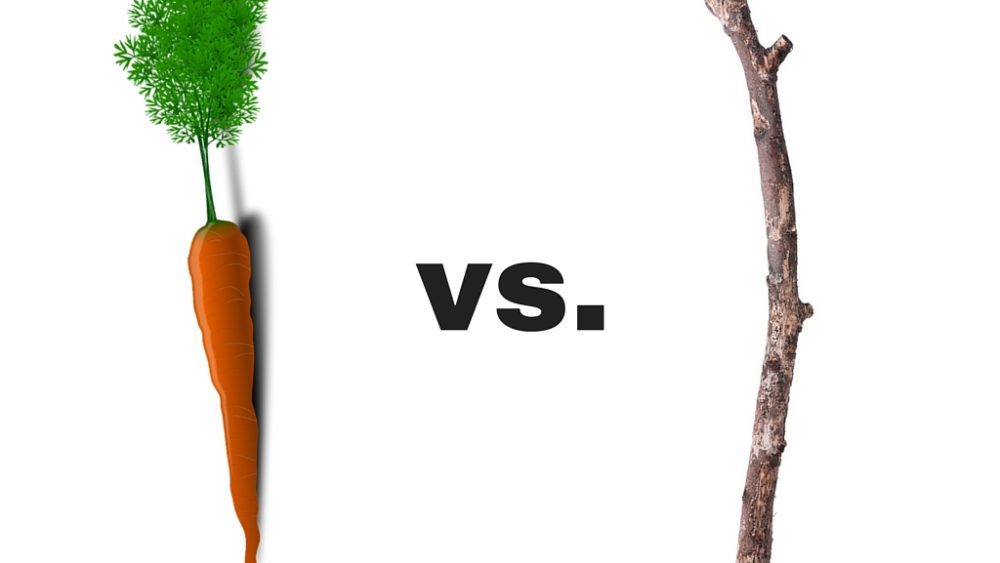The age-old idiom that references cart drivers and their donkeys – does punishment or prize help win the race?
I’ve always loved looking into the psychology of things, and carrot and stick is a prime example of how perception changes behaviour.
Take a look at your latest phone bill – you may find you get a discount for getting your invoice via email (or do you have a fee for paper?).
It’s also likely that there is an “early payment discount” for settling the bill before a specific date. The conspiracy theorist will tell you that this isn’t a discount, merely the standard price, and any “full price” amount is the original price with a fee tacked on. And to be honest, they may be right. But that’s not the point, the point is how your customers perceive the amount.
Carrot
The carrot method is ultimately positive conditioning. By doing this as an organisation, you are trying to institute Pavlov’s behavioural psychological experiments on your customers; re-enforcing good behaviour so that it will continue.
People are prone to think that if they pay their bills early, they’ll be making a significant saving (my electricity bill is 20 per cent!), and that’s exactly the sort of belief that you want.
If you’re considering changing to this method, don’t just make your normal price the early payment discounted one. Customers are smart, and will be upset by this – I’d say it’s pretty similar to giving your child dessert and calling it a treat, even when you have dessert every night.
Stick
The stick method is obviously counter to Pavlov’s theories; punishing bad behaviour and treating good behaviour as the norm. Ask the parent of any teenager and they will tell you this is a waste of time and will only make the punished dislike you, but bear in mind that your customers are most probably not teenagers (and everyone is different).
We’re not telling you to go around beating people with pieces of wood, but consider a reasonable “punishment” for those people who haven’t paid their bills on time. My phone company, for example, adds an $18 charge to the account if not paid on time (regardless of how large the bill is).
At the end of the day sometimes the carrot works best and sometimes it’s the stick. But the most important thing is that you make a choice about whether to punish or to reward and then stay with that decision; it’s annoying and unfair to your customers if you are constantly chopping and changing your mind.
For more tips and tricks about how to keep on top of those debtors (every step of the way), check out the rest of the Stacking the odds in your favour series.


Comments are closed.